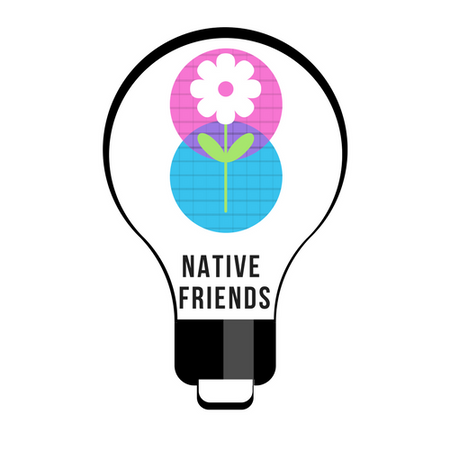There is plenty of language, history to talk about between Natives and non-Natives. Luckily, we've saved a seat for you to join this journey of inspiring yourself and community.

Speaking of Speakers:
Have you ever listened to a speaker and kind of zoned out? In the Yakama language, we call this "cháw mīshu" (it means no ears). Maybe your mind slipped to your grocery list or you daydreamed about the next travel adventure you would take. Then, all of a sudden, your ears hear a slight octave change in the speaker and then people start moving. Oh no, we have to do an activity!
Maybe this is the initial thought, but eventually, you start to like the conversation and group. You even volunteered to be note-taker. "Yay, you!" I see how you artistically lined up those markers.
At the end of the presentation, you feel refreshed and inspired. Your level of understanding is expanding and you feel articulate when delivering points to others.
What happened? That seemingly dull topic transformed into the highlight of your day.
You were able to participate when you learned. You listened and had a role. That's what Native Friends is here to help create for you. You have a role in this. This structure of participating as we learn is the common thread at Native Friends. So, while the topics may range a bit, we make an effort to try things, ask questions, all in the name of being Native Friends (or Friends of Natives too).

In many tribal communities, our Native children participate at a young age with learning history, gathering foods and speaking. This has adjusted since policies like boarding school.
Also, Native kids are in school during some of our ceremonial times. Some of you know this. Some of us would be shocked at kids forced to attend school during your families most cherished holiday traditions. There is the lively online debate about being forced to work retail during these times. Alas, that is the common reality of Natives. Community caregivers (parents, grandparents, aunts, uncles, etc) balance our ceremonial lessons with school schedules. It's a tough lively world out there. Yet, we remain hopeful. One of the benefits is that in the long-run we become more efficient. We are grateful to our family, friends and tribal members that even if they only have a few minutes with us or our children they compact our teachings into that short window of time. It reminds us of the artists that can create masterpieces in minutes. While these time crunch lessons should not be the norm, it is helpful to know that we can teach and share meaningfully for a couple minutes.
Even non-Natives serve a role in communities because that viewpoint and support may help Native goals.
Often Native goals are community goals and then Non-Natives begin to realize how that little Native kid's goals helped the adult unearth a buried goal of their own. Often, when talking with Natives others notice a pattern of reciprocity. So, this is why, rather than limit people we are inclusive of youth, adults, Natives, and Non-Natives.
Through a series of different topics, I will help with resources for language, history, and culture.
I get it, this sort of sounds like homework. Time is limited. So, in respect of the awesomely busy person you are, I understand that you don't have a lot of time to commit to learning. That's why I will comb through the topics beforehand to thoughtfully present them with your time in mind.
Got a little more time?
That's great, maybe you can leave a comment on what you want to learn about language or history. Also, if you like this article, join the mailing list for more updates.

2 comments
I will be avidly following! Watching you grow into the wise, witty woman with a penchant for sharing the teachings we all want to recapture is a heartfelt gift you offer! Thank you!
Judae M Bost'n
Awesome Em! So proud of your hard work. I love that you touched on the struggle between school/work and finding time for traditional ceremonies or activities. We actually became Unschoolers because Maceo desperately wanted to fish….because the roots wait for no one….and because the mountains are always calling. We wanted him to have the opportunity to truly learn and pursue these lessons.
Nicole